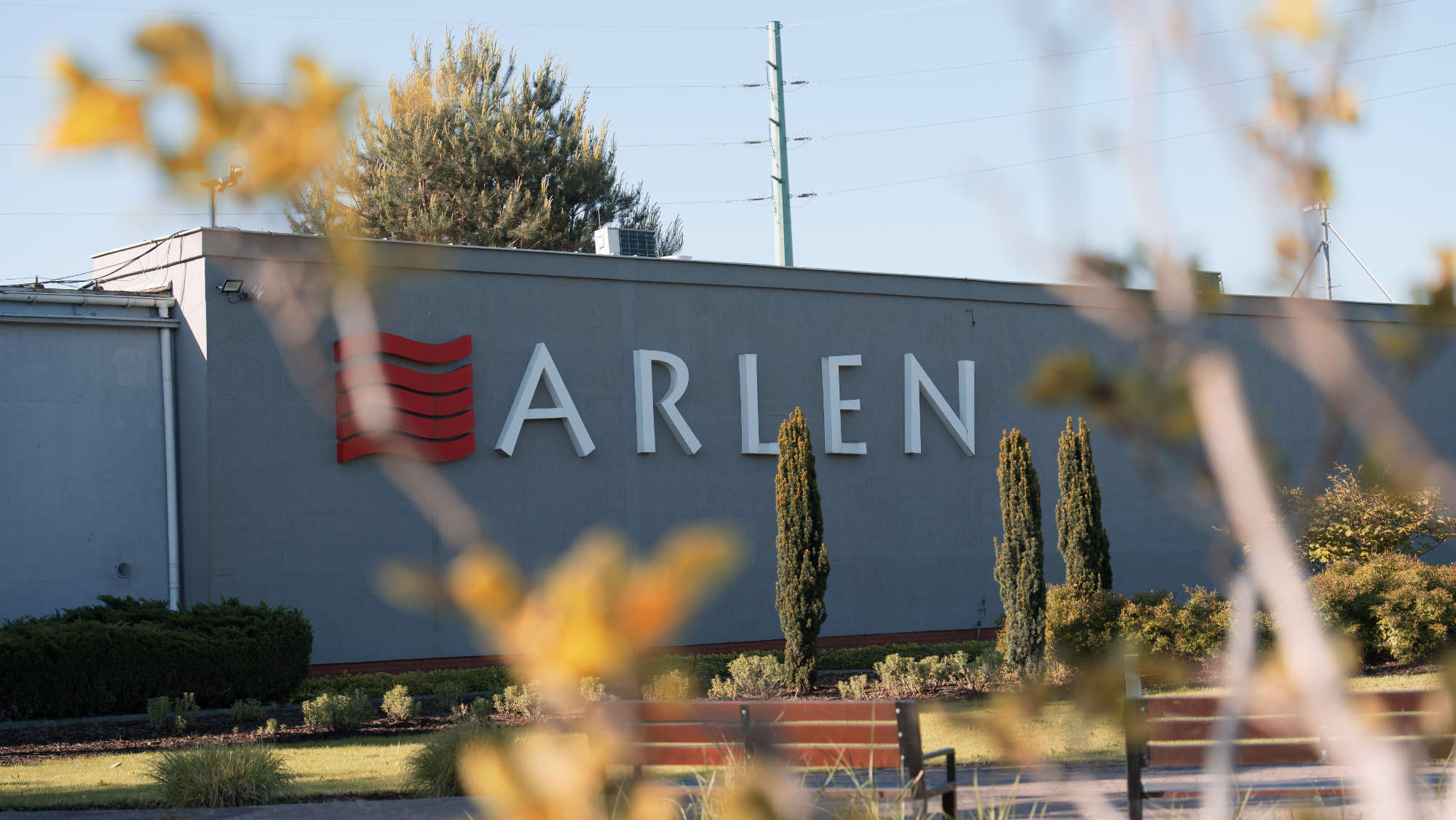Arlen Group is a leader on the Polish market and one of several leading entities in Europe, with a 30-year history in the specialized clothing industry. The company focuses on the production of specialized protective clothing and personal equipment for uniformed services. The Group is also a leading manufacturer of specialized fabrics in Poland – mainly laminated and backpack fabrics – for the production of protective clothing and personal equipment for uniformed services.
Interview with Andrzej Tabaczyński, CEO of Arlen.
A brief description of the Arlen Group and its activities.
Andrzej Tabaczyński: The Arlen Group is one of the few vertically integrated suppliers in Poland and Europe with its own large-scale production capacity, including a modern machine park (comprising four production plants in the country) and its own specialist laboratory and R&D center. We have completed many projects, successfully implemented innovative solutions in production, and have a reliable history of acquisitions, such as Optex S.A., a company we bought in 2005 and, after several years of restructuring, managed to make it the No. 1 manufacturer of specialized fabrics in Poland.
What are the ranges of products/services?
A.T: The Arlen Group has two development centers: clothing (Arlen) and fabrics and laminates (Optex). Clothing production at the Arlen Group begins with design. When designing technical clothing, the designer approaches the task with a view to meeting the specific requirements of the customer and achieving the required functionality. Institutional customers, who are the main target of the Group’s product range, usually require that, before mass production begins, the clothing or the plant dedicated to its production obtain a certificate issued by the relevant institutes and certification centers. Without this, the manufacturer cannot participate in the tender procedure or sign a contract for the delivery of products after winning it. Orders are fulfilled after signing contracts for a specific range of products in contractual quantities and deadlines. Therefore, the Company as a clothing manufacturer does not bear the risk of producing finished products for its own stock. The Group’s own plants specializing in the production and packaging of clothing employ approximately 400 employees and are equipped with various types of production machinery (machines for automatic fabric cutting or sealing outerwear). Fabric lamination technology is a complex process requiring the highest level of competence, experience, and production discipline.
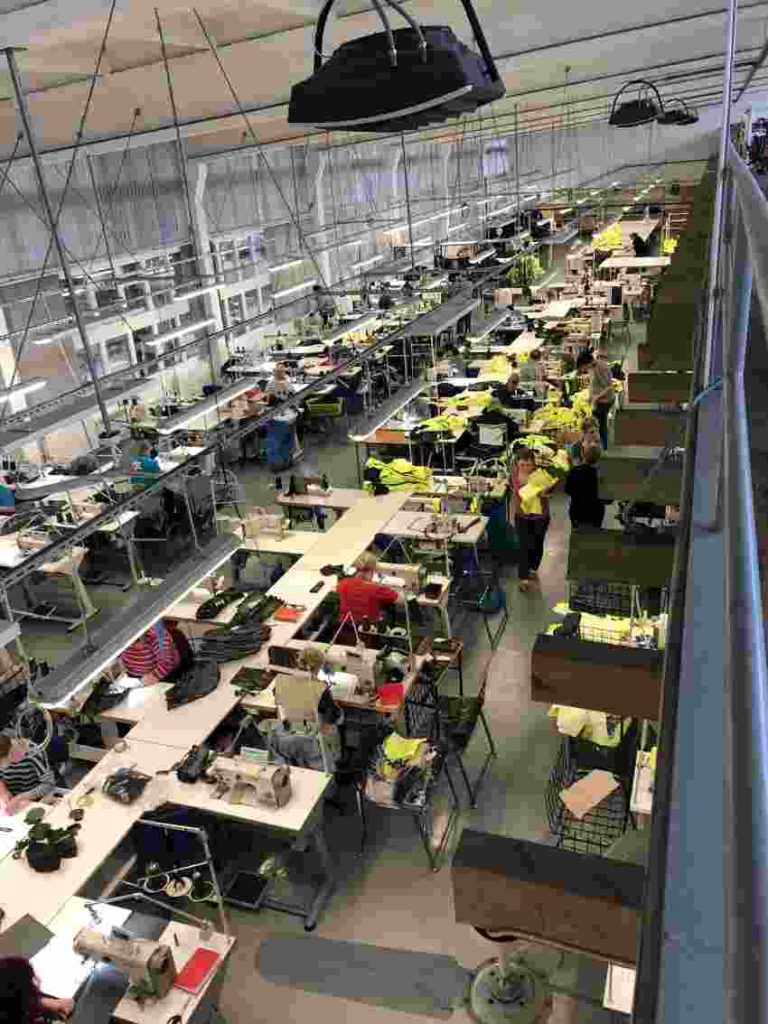
The use of two- and three- laminates in the outdoor segment paved the way for these solutions in the Company’s designs, also thanks to the unique properties of laminates produced by Optex S.A., which add new functionalities to fabrics, such as water repellency, oil repellency, and re-emission of fabrics (protective colors of military camouflage). The most important customers to whom the Arlen Group addresses its offer include uniformed services (the army, Border Guard, Frontex, special services, Police, National Revenue Administration, Fire Department) and business entities from specialized industries, including the fuel and chemical industries and clothing rental (rental).
What are the main areas of activity of the company?
A.T: In the years 2022-2024, the Arlen Group’s dominant sales market was the domestic market, which accounted for 92.4% of revenues in 2022, 91.4% in 2023, and 94.0% in 2024. The Group’s main customers on the domestic market are mainly uniformed services (the army, Border Guard, special services, Police, National Revenue Administration, Fire Department). Furthermore, Frontex is also a recipient of the Group’s products, and sales to this entity are formally included in the Group’s revenue generated on the Polish market, although the clothing itself is used by entities outside Poland. On foreign markets, as on the domestic market, the Arlen Group directs its offer to uniformed services (protective clothing), as well as civil sector entities, in particular companies from the rental sector (protective clothing), large industrial groups (including the fuel and chemical sectors), and other organizations that use uniforms (e.g., rail carriers). In 2022-2024, the Arlen Group’s foreign sales revenue structure was dominated by sales to customers in Germany and Switzerland (rental and corporate clothing) as well as in Lithuania and Norway.
The Arlen Group’s revenues in recent years have been positively influenced by the geopolitical situation, which strongly shapes the demand for equipment for uniformed services. The level of state budget expenditure on national defense and security is growing, which in turn directly translates into spending on specialized protective clothing and personal equipment for uniformed services. These market trends are expected to continue in the coming years.
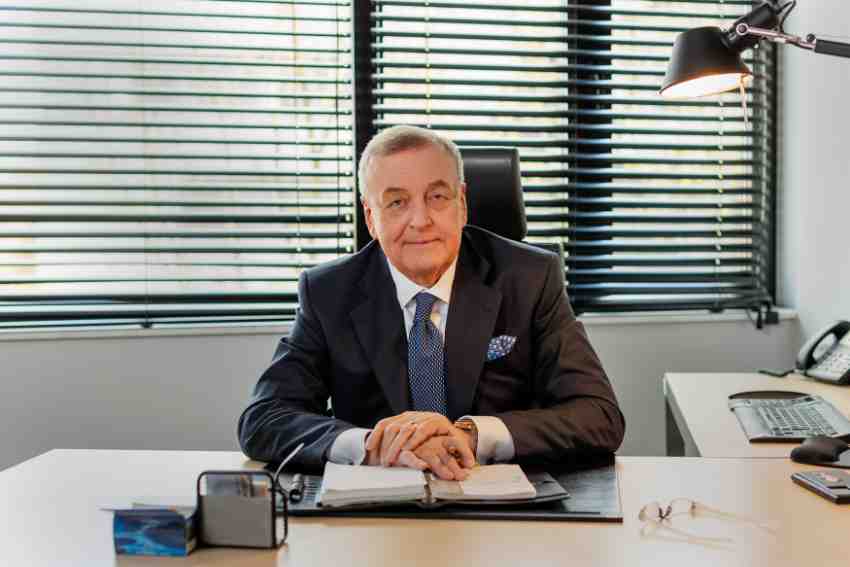
We are seeing a very important trend towards the concentration of orders and purchases from EU manufacturers. The Arlen Group is one of the few entities with large-scale domestic production facilities, from fabric to finished products, which enables efficient order fulfilment in a short time and at the highest level of quality.
What’s the news about new products/services?
A.T: This year, Optex S.A., a subsidiary of Arlen S.A., has completed an order for specialized fireblocker technical fabrics for a leading global manufacturer of aircraft seats. Over a period of two months, the company produced and delivered several thousand square meters of fabric. The agreement was preceded by several months of testing and product validation.
“MAVERICK”, an innovative fireblocker fabric from Optex S.A., is distinguished by its high temperature resistance and non-flammability, making it suitable for products used in extreme conditions that require the highest durability. The fabric was developed at the Arlen Group’s R&D center with the participation of the customer and then tested in the Group’s laboratories. The product has received technical validation from the customer, which meets the requirements of the aviation industry. This is the company’s first order in the aviation industry – cooperation with the demanding aviation sector confirms the highest quality of Arlen Group products.
The company plans to take steps to acquire new customers in the sector. The market potential is estimated at millions of square meters of fabric—one aircraft seat manufacturer uses approximately 3.5 million square meters of fabric per year. The order opens up opportunities for expansion in the aviation industry on the US market as well as other professional equipment and personal protective equipment, i.e., backpacks, specialized footwear, and gloves intended for uniformed services (military, police, special services, Border Guard, National Revenue Administration, Fire Department and railways) in the tender market.
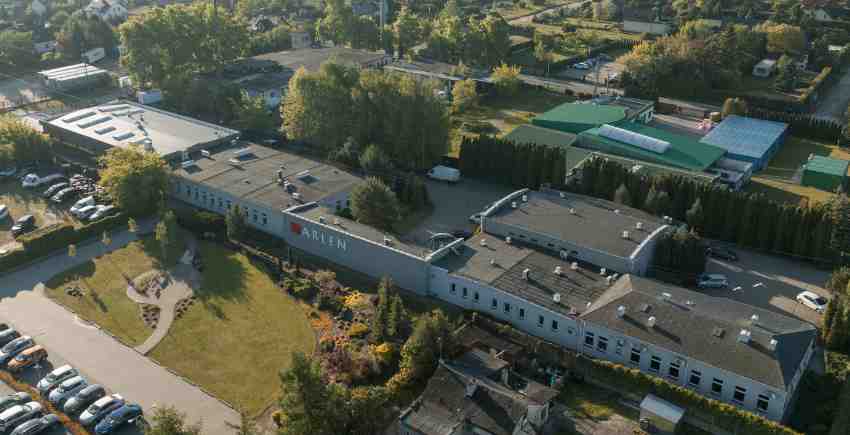
What are the most innovative products/services marketed?
A.T: Optex’s portfolio includes a range of 13 product groups, including 6 groups of technical fabrics, among which we can mention: laminated fabrics, both two-layer and three-layer, used in the production of personal protective equipment and clothing for uniformed services: the army, police, fire brigade, and special units; coated fabrics, flame-retardant fabrics, medical fabrics, filter fabrics, upholstery fabrics, and automotive fabrics.
In search for innovative opportunities, a couple of weeks ago Arlen S.A. signed a cooperation agreement with the Poland’s Military University of Technology. The agreement provides i.a. the exchange of knowledge and experience.
Both Arlen and WAT see enormous potential for cooperation in the area of scientific research and the implementation of innovations, such as activated carbon in CBRNE products (counteracting threats from chemical, biological and explosive agents, among others), camouflage nets and new non-flammable fabrics. The areas of research and development cooperation concern the Faculty of New Technologies and Chemistry and the Faculty of Mechatronics, Armament and Aviation, as well as the possibility of testing new solutions and materials in WAT laboratories.
I am convinced of the enormous competence of the employees and students of the Military University of Technology. By combining the university’s scientific approach, WAT’s experience in implementation, and our sales expertise, we can develop interesting products for the Polish army and other interested military forces in the region.
What can you tell us about market trends?
A.T: According to experts’ predictions and politicians’ announcements, state budget spending on the army will increase in Poland in the coming years. In the Company’s opinion, increased spending on defense and security should also translate directly into spending on individual equipment for soldiers, including uniforms. This applies not only to the Polish Armed Forces, but also to other European countries. The Company has been observing these trends for many months, and they have increased since the outbreak of the armed conflict in Ukraine in February 2022. The increase in demand for uniforms and protective clothing is and will continue to be driven not only by the planned increase in the size of the armed forces of individual countries (i.e., soldiers in active service), but also by the creation or renewal of the so-called inviolable reserve stored for the purposes of general mobilization in individual countries.
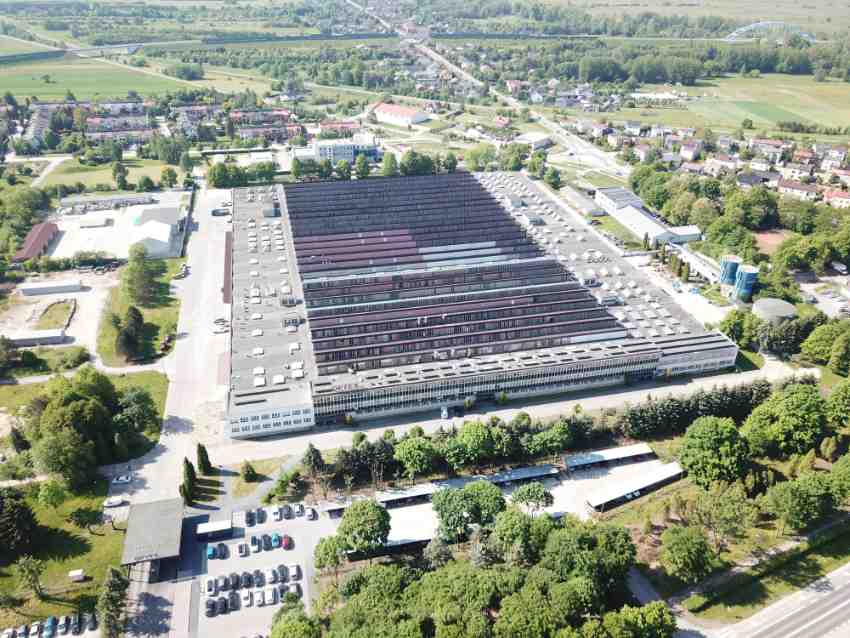
What estimations do you have for the second half of 2025?
A.T: The main strategic goal of the Arlen Group’s development is to become the leader among European manufacturers of specialized protective clothing – especially waterproof and breathable clothing, as well as other professional equipment and personal protective equipment, i.e., backpacks, specialized footwear and gloves designed for uniformed services (military, Police, special services, Border Guard, National Revenue Administration, Fire Department and railways) in the tender market.
The Arlen Group plans to expand into European markets and bid for contracts from other countries, particularly in geographical areas such as German-speaking European countries, Spain, Scandinavian countries, Baltic countries and Central and Eastern European countries. At the same time, the geopolitical situation, which obliges an increase in budgetary expenditure on defence, not only in Poland, favors an increase in demand for the Group’s products, which creates conditions for further market penetration in the field of protective clothing and other personal equipment for uniformed services.

